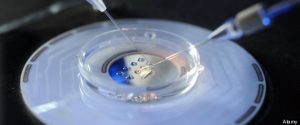Dear Drake: whether you decide that Natural Insemination (NI) or Artificial Insemination (AI) is the…
read more » California is set to change their laws with regards to woman and egg donation. The new bill that is set to pass would allow payments over and above direct expenses to be made to women who donate eggs for research. Law makers are urging the passing of the bill to increase the supply of eggs to scientists studying reproduction. The bill will not eliminate restrictions on research supported by the CIRM, a major funder of stem-cell research. In 2004, California enacted Proposition 71, a referendum that only allowed woman donating eggs to California Institute of Regenerative Medicine (CIRM) researchers to be compensated for direct expenses. A separate 2006 law extended that restriction to all research in California.
California is set to change their laws with regards to woman and egg donation. The new bill that is set to pass would allow payments over and above direct expenses to be made to women who donate eggs for research. Law makers are urging the passing of the bill to increase the supply of eggs to scientists studying reproduction. The bill will not eliminate restrictions on research supported by the CIRM, a major funder of stem-cell research. In 2004, California enacted Proposition 71, a referendum that only allowed woman donating eggs to California Institute of Regenerative Medicine (CIRM) researchers to be compensated for direct expenses. A separate 2006 law extended that restriction to all research in California.
The bill which is expected to pass as early as tomorrow, could bump up payments to women donating from hundreds to thousands of dollars. A recent egg donation study in Oregon offered between $3,000-$7,000 to each woman donating. The pay boost will likely help researchers to compete with fertility clinics for eggs.
More on this can be found here.
Insoo Hyun, a bioethicist at Case Western Reserve University in Cleveland, Ohio, notes that the new bill mandates oversight by institutional review boards (IRBs), which routinely consider whether compensation constitutes “undue inducement” to the point at which participants ignore risks.
But Hyun takes exception to a loophole in the new bill that applies to eggs left over from donors who are compensated for providing eggs to infertile women. According to Hyun, it is a largely unregulated transaction that can fetch more than $10,000 per collection. Under current law, these leftover eggs cannot be used for research. The proposed bill would allow researchers to use them, but also instructs IRBs to ignore how much women were paid for such eggs, provided certain conditions are met, such as the donor deciding she does not need the eggs herself. “The threat of undue financial inducement is one of the key ethical issues in egg donation for stem-cell and other biomedical research,” explains Hyun, “This bill requires the IRB to disregard this. That’s pretty strong language.”






